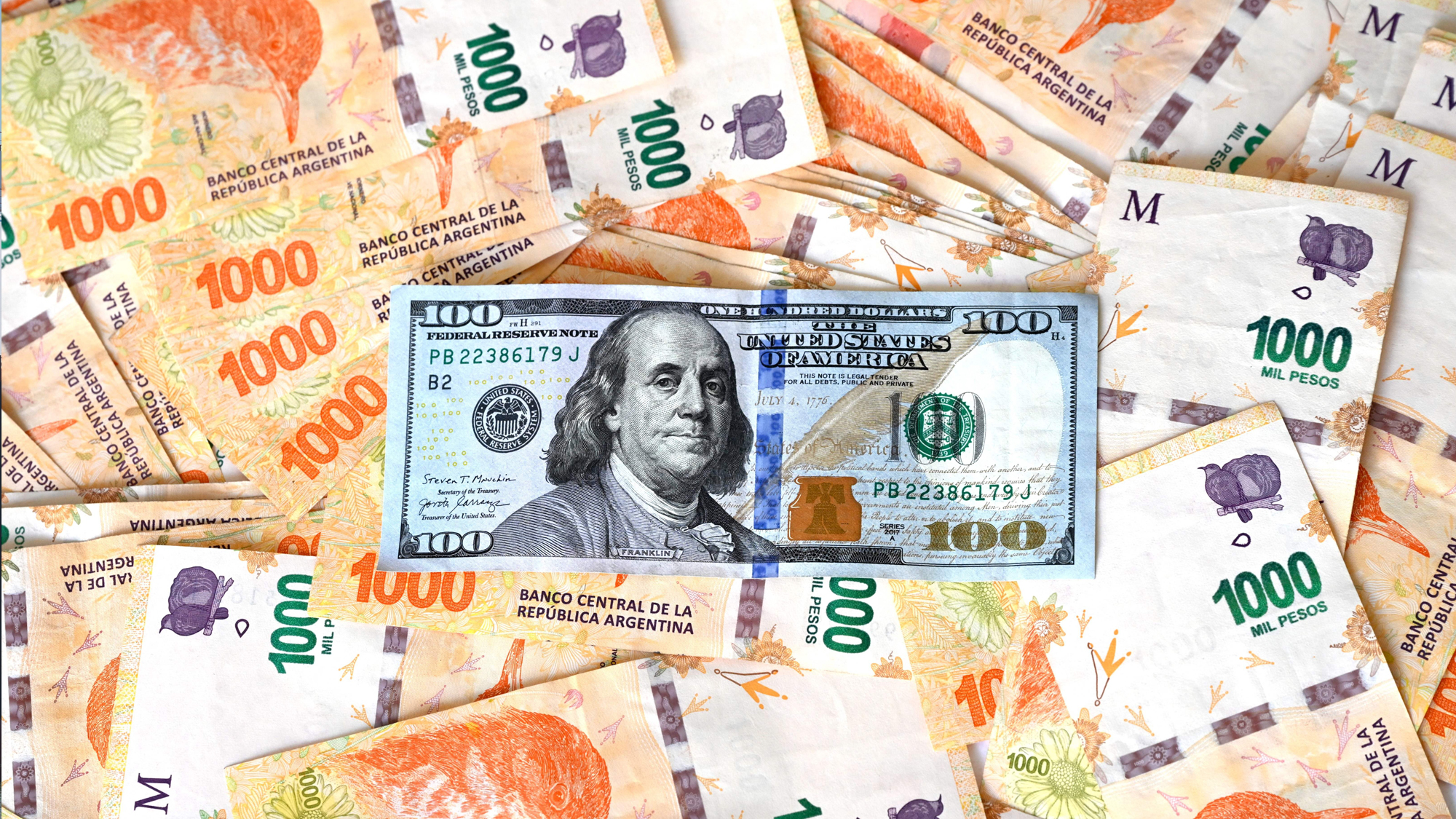Currency: the long reign of the mighty dollar
Argentina is planning to drop the peso in favor of the US dollar

A free daily email with the biggest news stories of the day – and the best features from TheWeek.com
You are now subscribed
Your newsletter sign-up was successful
The smartest insight and analysis, from all perspectives, rounded up from around the web:
In Argentina, the currency is worth so little that foreigners crowd around to photograph the pile of peso notes it takes to pay for a restaurant dinner, said Ciara Nugent in the Financial Times. When American or British visitors tell them about their own inflation worries, Argentinians merely laugh. "The South American country is suffering its worst crisis in decades, with annual inflation above 140% and two-fifths of Argentines in poverty." The Argentine currency has lost 98% of its value against the dollar since 2017, when the country introduced a 1,000 peso note — now worth less than $3. Argentines have learned to cope with the dysfunction, knowing it’s better "to splash any extra cash than hold on to pesos." The crisis and falling pay have made services cheap, but any goods coming from abroad have been made stratospherically expensive by "protectionist policies."
Argentina’s new president, Javier Milei, "an eccentric economics professor turned TV pundit," was elected on promises to dump the peso in favor of the U.S. dollar, said Samantha Pearson and Silvina Frydlewsky in The Wall Street Journal. At his inauguration this week, though, Milei, a "self-described anarcho-capitalist," made no mention of the much-publicized proposals to "dollarize the economy and scrap the central bank." Desperate as Argentina is for a solution, the realities of dropping its currency have pushed Milei to side "with more mainstream economic advisers." That’s the right move, said The Economist. The draw of dropping the nearly worthless peso is clear, most "Argentines use dollars anyway" for many transactions, and Argentina’s central bank has been epically "irresponsible." But without a central bank to act as a lender of last resort, banks can fail — and when they do, "the government lacks the dollars to cover deposits." Ecuador dollarized its economy in 2000, with inflation nearing 100%, and its prices have indeed stabilized. However, it didn’t solve the country’s borrowing addiction, or ward off economic collapse.
The Week
Escape your echo chamber. Get the facts behind the news, plus analysis from multiple perspectives.

Sign up for The Week's Free Newsletters
From our morning news briefing to a weekly Good News Newsletter, get the best of The Week delivered directly to your inbox.
From our morning news briefing to a weekly Good News Newsletter, get the best of The Week delivered directly to your inbox.
At the same time, de-dollarization is a growing threat, said Joe Sullivan in Foreign Policy. A bloc of countries led by Brazil, Russia, India, China and South Africa (BRICS) have since this summer been pushing to reduce the U.S. dollar’s hegemony over global trade. They want trade to flow in each member’s own national currency, and have even suggested a joint currency of their own. And they keep adding new members — including Egypt, Ethiopia and Saudi Arabia, the perfect trio to "weaponize" the Suez Canal’s importance in global trade.
We’ve heard predictions of the dollar’s demise many times before, said Andreas Kluth in Bloomberg. But "the euro didn’t displace it, nor will cryptocurrencies or the Chinese renminbi." It’s understandable that other countries are envious. The U.S. "can keep running trade deficits indefinitely because foreigners will always be happy to hold its dollars." Dollar dominance also "insulates the U.S. from global economic shocks," since investors will rush into the currency as a "safe haven. But on balance, the near-universal acceptance of the dollar is probably good for the world, too, as its "medium of exchange, unit of account and store of value." No Chinese communist technocrat or blockchain gimmickry can replace that.
This article was first published in the latest issue of The Week magazine. If you want to read more like it, you can try six risk-free issues of the magazine here.
A free daily email with the biggest news stories of the day – and the best features from TheWeek.com